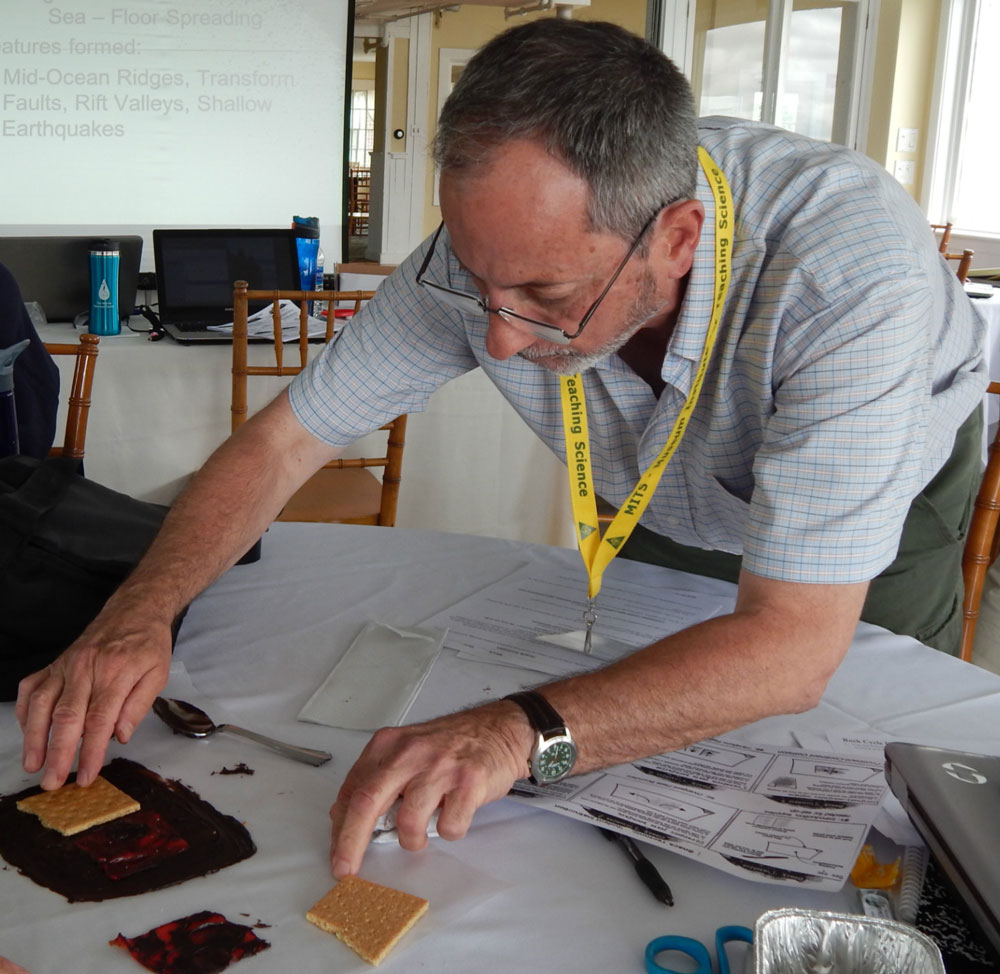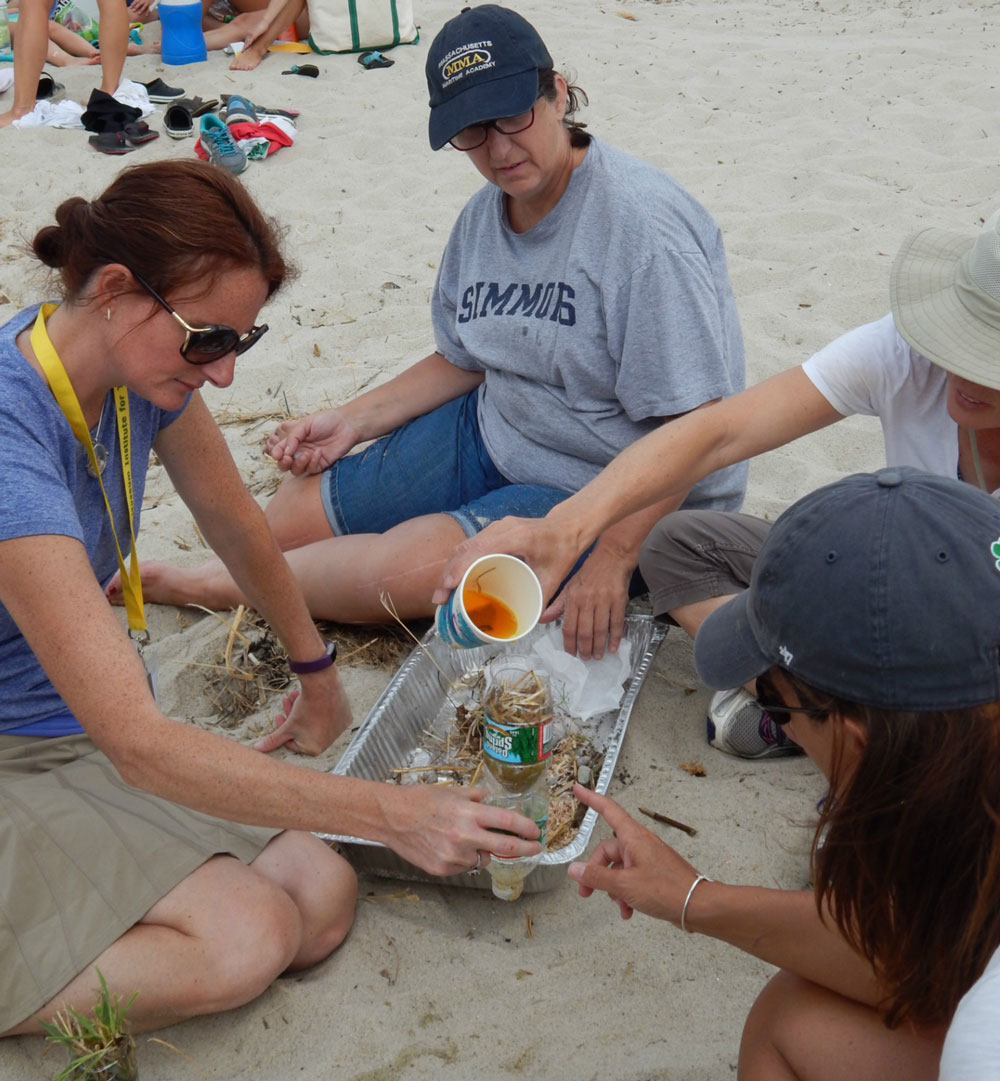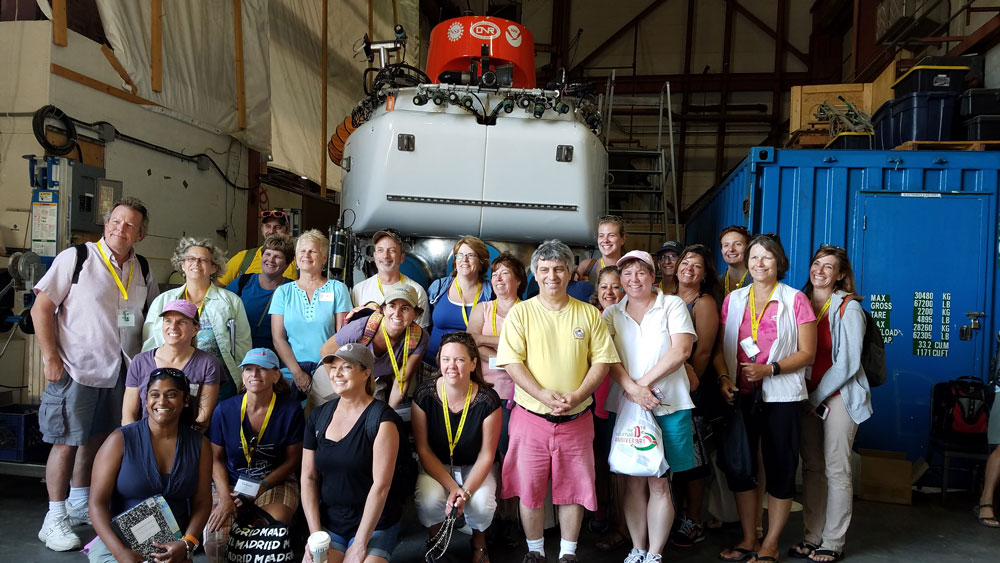Wednesday, September 7, 2016
For Immediate Release
Teachers Explore the Geology and Ecology of Cape Cod with the Museum Institute for Teaching Science
Summer is the best time to explore the coast, so from July 11th-15th twenty-seven third to eighth grade teachers from sixteen schools took part in the Museum Institute for Teaching Science Cape Cod Region Summer Professional Development Institute, Movers and Shakers: Exploring Earth Science and Curriculum Frameworks in the Coastal and Marine Environment. With scientists and educators from the National Marine Life Center, Thornton Burgess Society, Mass Audubon’s Long Pasture Wildlife Sanctuary and Woods Hole Oceanographic Institution, teachers explored the shores and the oceans to find out what makes the natural history of Cape Cod unique.
Through hands-on investigations, teachers took a step back in geological time to study the formation of the coastline. Using graham crackers and candy “magma,” they modeled the movement of tectonic plates and the formation of land masses at boundary lines. In small groups, the teachers examined how glacial erosion occurs by designing models of the land using PVC pipe and homemade putty to represent glaciers. As putty slowly slid down the chute, the group observed movement of sediments as well as the scoured trail left behind the mock glacier. These activities were just a few of many activities presented during the week that teachers can take back to their students and provide explanation for how Earth’s surface has changed.
At the water’s edge, participants modeled coastal erosion and investigated dunes. They built miniature habitats to show the importance of dune formations as natural barriers from the effects of wave action and storm surge on coasts. Grass plantings on the dunes helped to mitigate erosion along the miniature coastline. To investigate the role of dunes in water filtration, participants designed their own filters from sand, rocks, and plant material. These activities can be used with students to collect data to provide evidence that rocks, soils, and sediments are moved around through erosion. Teaching students to argue from evidence is one of the science practices in the MA Science and Technology/Engineering Standards that teachers need to incorporate into their instruction.
For more ideas of ways to inspire and engage students, the teachers toured the National Marine Life Center. Behind the scenes, the teachers were introduced to marine mammal rehabilitation hospital patients, many of whom had stranded along the Northeast coastline. During the summer months, patients are primarily seal pups who suffered maternal separation. They often are malnourished, dehydrated and infested with parasites, or they suffer from respiratory distress that would lead to pneumonia in the wild. A field trip to a hospital filled with sick seals can prompt student engagement and advocacy of ocean sciences.
During the week, the teachers also traveled to Woods Hole Oceanographic Institution (WHOI), where they witnessed some of the science and engineering practices and instruments involved in studying ocean processes. The group visited Alvin, the first 3-person research submersible (Human Occupied Vehicle, or HOV) utilized by WHOI scientist.Alvin was recently modified and modernized, so the teachers learned about the engineering changes made to the vehicle. Alvin has been utilized by scientists to study benthic features, such as the Mid-Atlantic Ridge, since 1965 and has helped with mapping the ocean floor along the New England coast as well as more extensive sampling of the ocean.
During the Cape Cod Region Summer Professional Development Institute, participants collected resources to add to their teaching resources. They explored ways to bring science and engineering practices back to their classrooms, while earning Professional Development Points (PDPs) and graduate credits. When the school year begins, these teachers will be better equipped to help their students navigate hands-on, minds-on, inquiry-based science lessons and work with the newly revised MA Science and Engineering/Technology Standards.
The Museum Institute for Teaching Science specializes in providing hands-on, minds-on, inquiry-based STEM professional development for formal and informal educators. For more information, visit www.mits.org or call 617-328-1515.



